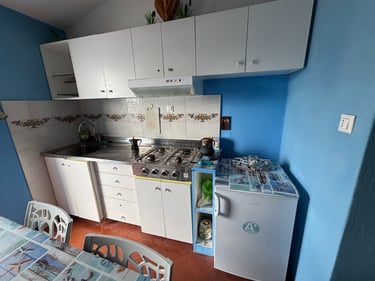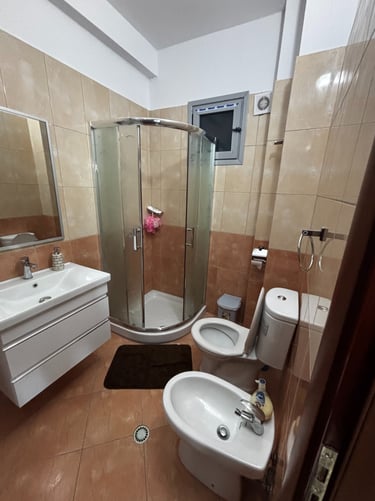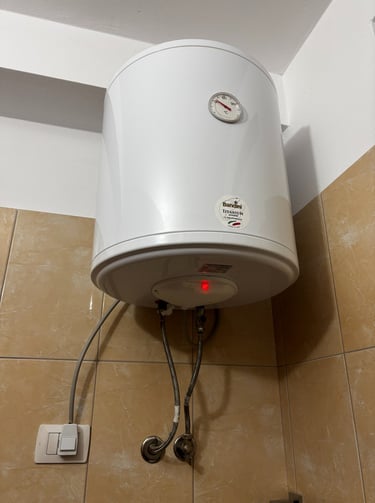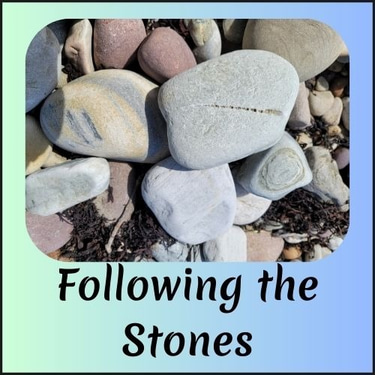How to Live a Smaller Footprint
Our travels allowed us to discover the fallacies of advertising and embrace a minimalist lifestyle while we journey through Europe.
LIFESTYLE
8/21/20255 min read


For decades as a homeowner, I’ve watched HGTV tell us how we, Americans, need to have a bigger kitchen and a more luxurious bathroom and more bedrooms with a bigger backyard and a larger garage, more, more, more. Turn on House Hunters and that’s all you will hear. When you go to Europe, you realize the fallacy that HGTV has been selling. The majority of the cities and towns that we visited have apartments, NOT stand-alone houses. I’m sure every apartment is different in size, shape and style; but Greg and I are typically choosing to live in a one bedroom, one bath apartment which sometimes has a small balcony or outdoor patio. We rent apartments in locations where we are spending 14 to 30 days because we are trialing how the locals live and we need a kitchen to cook. Does this take away from local rentals? Yes, but it allows us to try on the life of a local. Sitting on the balcony this morning, I can hear the locals beginning their day. I can watch them hang their laundry and learn how to hang my laundry. Renting an apartment for several weeks I can learn how the locals take their trash out. Italy has an amazing recycle system for their trash and I loved learning how to sort it into four different bins as I used each item. Much of the products in Italy are even packaged with recycling in mind and take away comes in thick cardboard packaging and trays in paper bags not plastic or Styrofoam. This lifestyle is teaching us to live in a smaller footprint.
Shopping: We purchase only what we need, when we need it (See our Grocery BLOG). Yes, we have to purchase grocery products at more than one store based on their specialty bread/pastries, meats, cleaning products, laundry soaps, etc. but since we carry our groceries, we are buying smaller quantities from a smaller selection of products. It has become easy to stop for a few dinner items while we are out for a daily walk. Some of the towns we visited do not have proper drinking water, so we even buy 5-7 liter jugs of water and carry them back to the apartment. If this were our forever lifestyle, I still wouldn’t stock up on products like we did in America because the home footprint is smaller (less storage) and living a smaller daily footprint has fostered a joy for the minimalist way of life. Additionally, by shopping nearly daily, we get to interact with local residents and merchants. We problem solve, learn and use communication. We even start feeling a sense of community by the end of our 30-days.
We are enjoying our semi-nomadic lifestyle. We are thoroughly enjoying learning how other people live too. By turning off the television and reducing the social media, we successfully turn down the over-consumerism way of living. Some consumerism is good, but over-consumerism increases our footprint, hurts the environment, and weighs on our emotions. We have embraced a minimalist mindset.
Kitchens: HGTV tells us how huge kitchens and bathrooms have to be. I’m a cook. It’s a passion. I have to have space to chop vegetables with multiple pans being used for meals and space for dirty dishes. But I’m learning to live with a smaller kitchen footprint. Many of the kitchens we’ve chosen are about 6’ long and 24” deep. Like a small single-sided galley, they open directly to the living room and/or the dining room which can act as a an additional prep zone. Some of the kitchens had a dishwasher. Some of the kitchens had a full-sized refrigerator. Most of the kitchens have been equipped with 1-2 knives and 3-5 pots/pans. I can now survive with only one frying pan, though two is better. Recently we did purchase some useful kitchen items I couldn’t live without and left them for the hosts (ex. cheese grater, spatula, turner, scissors). In this lifestyle, I’ve discovered that some kitchens are, indeed, too small to meet my needs, but my kitchen no longer needs to be as large as a bedroom, nor do I need every gadget ever made.
Bathrooms: Bathrooms in Europe are minuscule by comparison to the US standards and many of them have the washing machine in the bathroom. We are liking the location of the washing machine. Most of the bathrooms are quite functional with 24” vanities for anything you do in front of the mirror. Most of them have plenty of floor space to do your business on the toilet or the bidet, but for us a bidet is a waste of space. The hardest part of the small bathrooms is the size of the shower and the position of the faucet in the tiny space. Let’s just say that the average European shower will literally not accommodate the average sized American body. Due to the hot water tanks being only about 10-15 gallons, we are also learning how to take what we call a “European shower” or “Navy Shower”. Wet your hair and body wash your hair and face. Turn the water off to scrub your body, then turn the water on to rinse your body. It’s a great way to save water and help the planet. But still I would like an extra 2 feet in the shower space along with a hook or shelf for products.
Electricity: Because electricity can be expensive here and we do not want to burden the owner, we turn off or leave off unnecessary lights, fans or air conditioners. In some of our homes we have been asked to turn off the hot water heaters when they are not in use. We have limited electronics in our travels and charge them as needed. We only watch about 2 hours of YouTube or television a week. We choose apartments that have a washing machine, but only 1 has had a dryer. Instead, we hang dry our laundry on racks in the balcony or living room leaving a much smaller footprint on the electrical grid.
Transportation: We don’t have a car for our travels. We rented a car for 3 days in Lucca, 3 days in Monopoli, and 3 days in Vlore. We used trains and busses in Italy. We use an occasional bus or taxi in Albania. We walk to the grocery store and everywhere daily life takes us averaging 5 miles per day. Gone are the must-have-a-car footprint days.




